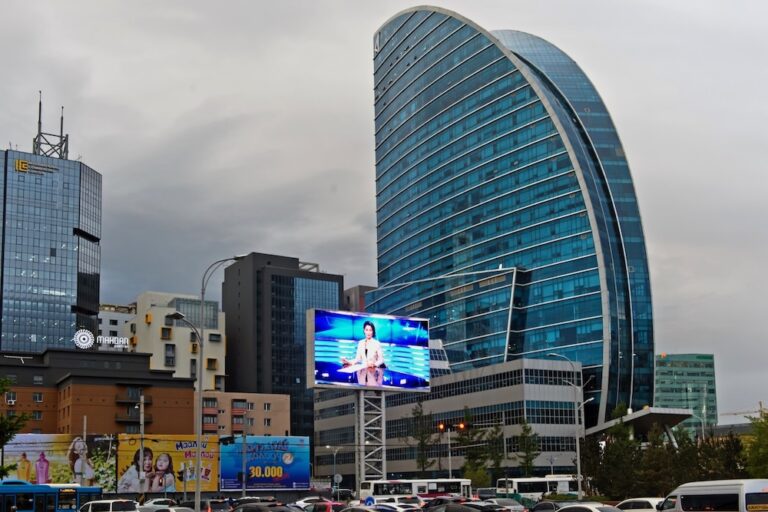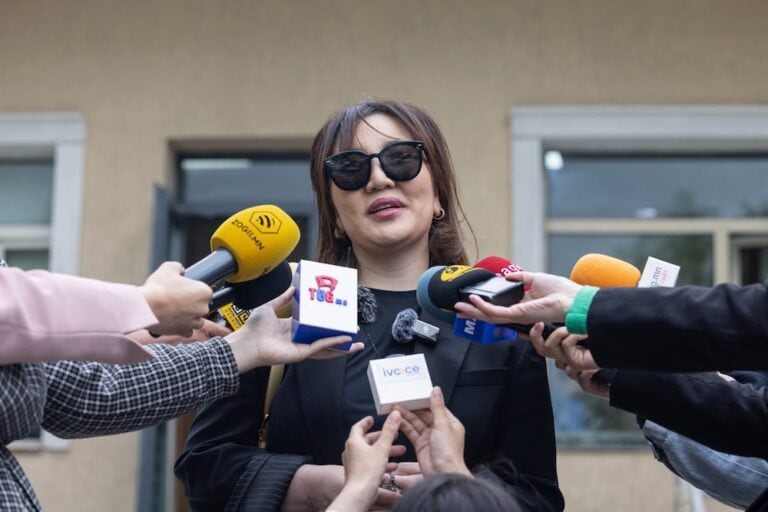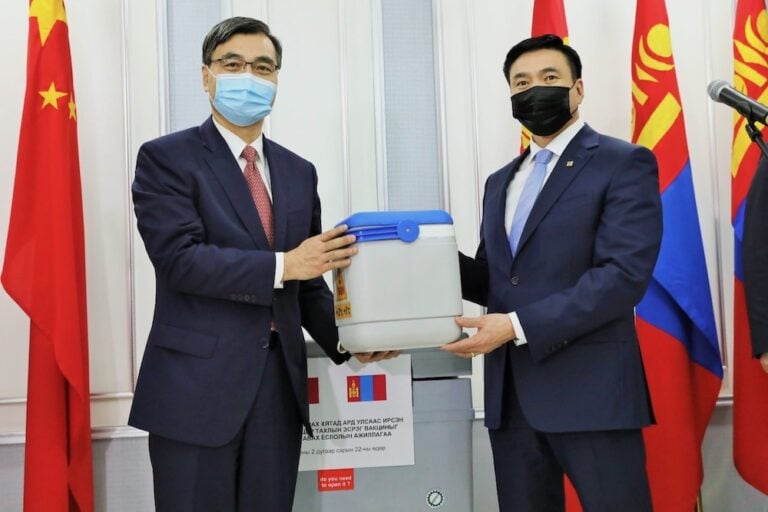(Globe International/IFEX) – The following is a 6 November 2007 Globe International press release: Protecting Journalists’ Confidential Sources and Repealing the Criminal Defamation Legislation Globe International is launching a six-month project, “Protecting Journalists’ Confidential Sources and Repealing the Criminal Defamation Legislation”, to provide greater protection for Mongolia’s media. The project, funded by the US Embassy, […]
(Globe International/IFEX) – The following is a 6 November 2007 Globe International press release:
Protecting Journalists’ Confidential Sources and Repealing the Criminal Defamation Legislation
Globe International is launching a six-month project, “Protecting Journalists’ Confidential Sources and Repealing the Criminal Defamation Legislation”, to provide greater protection for Mongolia’s media.
The project, funded by the US Embassy, is aimed at promoting the media’s role in contributing to transparent and accountable governance and curbing corruption by improving legal protections for reporters.
The overall objective of the project is to draft legislation on the protection of journalists’ sources and to make amendments to Mongolia’s Criminal Law pertaining to defamation to make the legislation consistent with international standards.
Through consultation with the media, Globe International has found that among journalists’ main concerns are the absence of protection of confidential sources and the existing strict criminal defamation legislation.
Journalism plays a vital democratic role in exposing wrongdoing. The protection of whistleblowers and journalists who report such wrongdoing is of a broader public concern. The quality of the relationship between journalists and their sources decides the amount of information that makes its way into the public domain.
At present, authorities use defamation laws to silence journalists. Forcing journalists to divulge their sources is common in Mongolia. In most cases, they are threatened with arrest, imprisonment, and a court case.
The latest survey by Globe on the use of defamation laws showed that the courts reviewed 187 defamation cases between 2001 and 2005. The media won 9.6 percent of the cases; they lost 59.6 percent. In 31.5 percent of the cases, the media and plaintiffs were reconciled. Sixty-three percent of the cases were instigated by public figures and public institutions.
Globe anticipates that the ability of journalists to protect their sources and whistleblowers’ confidentiality will eliminate the fear of imprisonment that is currently hampering journalists, particularly in the pursuit of investigative journalism.
At the conclusion of the project, Globe International anticipates that the ability of journalists to protect their sources will be strengthened, and security and confidentiality will be provided for whistleblowers.
The draft legislation team (DLT) consists of 11 people who have vast legal experience. At the DLT meeting on 31 October 2007, the team decided to work separately on protecting journalists’ sources and on the amendment of criminal defamation legislation.
The DLT meeting, held at Globe International NGO, included participation from H. Naranjargal, B. Galaarid, S. Bayar, P. Oyuntsetseg, D. Saranchimeg, M. Altan-Ulzii, G. Davaakhuu and D. Munkhburen.
DLT member G. Davaakhuu is leading the team on the amendment of criminal defamation legislation. He distributed a work plan to the DLT. They also discussed researching other countries’ laws. At the end of the meeting, they agreed to send an e-mail to G. Davaakhuu on 9 November on whether they should amend the current law or devise a new one.


